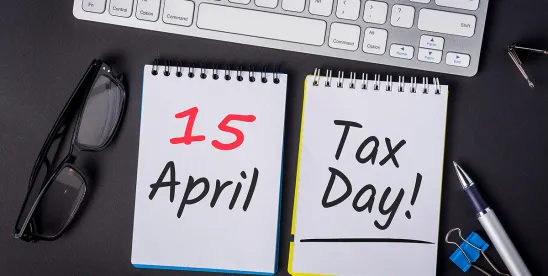In Libitzky v. United States,[1] the United States Court of Appeals for the Ninth Circuit affirmed disallowance of a $700,000 federal income tax refund claim. The court said that this was an “unfortunate” case, but they were bound by the statutory language providing for tax refunds, which did not permit equitable tolling of a limitation period.
Perhaps Libitzky is consistent with the 2022 decision of the Supreme Court – Boechler, P.C. v. Commissioner[2] - on the granting of equitable relief - or perhaps it is not, but the Ninth Circuit did not even cite, let alone discuss, Boechler in its decision. The application of Boechler is contentious. In 2023, the Third Circuit relied on Boechler to equitably toll the limitation period to petition the United States Tax Court to redetermine a proposed tax deficiency, but in 2022 the Eleventh Circuit expressly refused to rely on Boechler.
Federal Tax Refund Procedure: A taxpayer claiming a refund of an overpayment of federal tax must file the claim within two separate periods of limitation. First, if the taxpayer files a tax return, the claim must be filed within three years of the date that the taxpayer filed the return.[3] Second, if the taxpayer filed the claim within the prescribed three-year period, the refund cannot exceed the amount of tax paid within the three-year period immediately preceding the date on which the taxpayer filed the refund claim (“the Look-Back period”).[4]
Facts: The taxpayers in Libitzky satisfied the statutory time limit for the first limitation period, but they paid the $700,000 tax for which they claimed the refund more than three years before they filed the claim. The court treated payment within this Look-Back Period as a jurisdictional prerequisite, and because the tax was not paid in the Look-Back Period, the case was dismissed for lack of jurisdiction. The court did so without considering whether the Look-Back Period was eligible for equitable tolling.[5]
Equitable Tolling: The equitable tolling doctrine pauses the running of, or “tolls,” a statute of limitations when a litigant has pursued its rights diligently, but some extraordinary circumstance prevents it from bringing a timely action.[6] A jurisdictional requirement cannot, however, be waived or forfeited and does not allow equitable exceptions.[7]
Pre-Boechler Supreme Court Decision on Equitably Tolling: In 1997, in United States v. Brockamp, the Supreme Court ruled that the limitation periods for filing a tax refund claim were jurisdictional and consequently were not subject to equitable tolling. The court considered together both (i) the limitation relating to the filing of the claim within three years of the date that the return was filed, and (ii) the limitation based on the Look-Back Period:[8]
“Section 6511 sets forth its time limitations in unusually emphatic form. Ordinarily limitations statutes use fairly simple language, which one can often plausibly read as containing an implied – equitable tolling - exception. .…§6511 uses language that is not simple. It sets forth its limitations in a highly detailed technical manner, that, linguistically speaking, cannot easily be read as containing implicit exceptions.”
In Boechler, the Supreme Court ruled that a limitation period is a jurisdictional prerequisite only if Congress "clearly states" that it is. The clarity does not require use of specific words but rather the application of the traditional tools of statutory construction, and even if the construction advocated by the United States is better, that is not enough. To satisfy the clear-statement rule, the jurisdictional condition must be “clear.” And if it not clear, it is a “claims processing rule,” the limitation period for which may be extended by equitably tolling, unlike a period that is a jurisdictional prerequisite, which may not.
At issue in Boechler was whether the thirty-day period within which to petition the Tax Court for review of an adverse determination in a collection due process hearing was a jurisdictional prerequisite.[9] The court ruled that it was merely a claims processing rule, rejecting application of Brockamp:
“[B]ut that case is inapposite. Brockamp's holding rested on several distinctive features of §6511 that are absent here. Unlike §6511's deadline, §6330(d)(1)'s deadline is not written in ‘emphatic form’ or with ‘detailed’ and ‘technical’ language, nor is it reiterated multiple times. Id., And §6330(d)(1) admits of a single exception (as opposed to §6511's six). See §6330(d)(2). If anything, these differences underscore the reasons why equitable tolling applies to §6330(d)(1).” (Internal page references omitted.)
The Boechler test that directs a search for statutory clarity is not, itself, so clear as to produce consistent results in the United States Courts of Appeals. A taxpayer may petition the Tax Court requesting a redetermination of a tax deficiency within ninety days after the Commissioner mails to the taxpayer a notice of deficiency.[10] In Allen v. Commissioner,[11] the taxpayer filed its petition one day late and argued that the ninety-day period should be equitably tolled under Boechler. The Eleventh circuit rejected the argument, finding that the filing period is a jurisdictional prerequisite for a suit in the Tax Court and cannot be tolled.
In Culp v. Commissioner,[12] the taxpayers filed their petition years after the IRS properly sent a notice of tax deficiency. But relying on Boechler, the Third Circuit ruled, unlike the Eleventh Circuit in Allen, that there is no "clear tie between the deadline and the jurisdictional grant,” thus concluding that the ninety-day filing period to contest a notice of deficiency was non-jurisdictional and could be considered for equitable tolling.
With the apparent confusion over the application of Boechler, it is appropriate to consider whether, for an issue like that in Libitzky, the Supreme Court might be convinced to apply equitable tolling to the Look-Back Period. There is no precedent that specifically and directly evaluates the Look-Back Period, alone, for purposes of equitably tolling. If the Look-Back Period can be evaluated apart from the limitation period requiring the claim to be filed within three years of filing the return, the question appears to be whether statutory terms of the Look-Back Period are unusually emphatic, written in detailed technical language, and not easily read as containing implicit exceptions. If the answers to the questions are “no,” perhaps equitable tolling applies to it.
[1] -- F.4th ----, 2024 WL 3643581 ((9th Cir. Aug. 5, 2024).
[2] 596 U.S. 199 (2022).
[3] IRC§6511(a).
[4] IRC §6511(b)(2)(A).
[5] The taxpayer also argued that it timely filed an informal claim within the Look-Back period, an argument that the court rejected.
[6] Lozano v. Montoya Alvarez, 572 U.S. 1, 10 (2014).
[7] Boechler, 596 U.S. at 203.
[8] 519 U.S. 347.
[9] See Miller Canfield prior discussion at https://www.millercanfield.com/resources-Procedural-Actions-Following-Supreme-Court-Boechler-Remand.html.
[10] IRC §6213(a).
[11] 2022 WL 17825934 (11th Cir.2022).
[12] 75 F.4th 196 (3rd Cir. 2023), cert. denied, - U.S. -, 2024 WL 3089559 (June 24, 2024).




 />i
/>i
